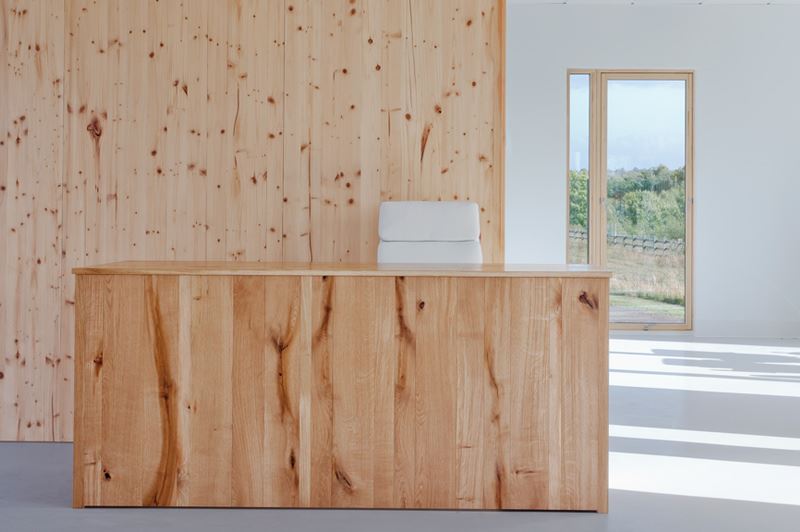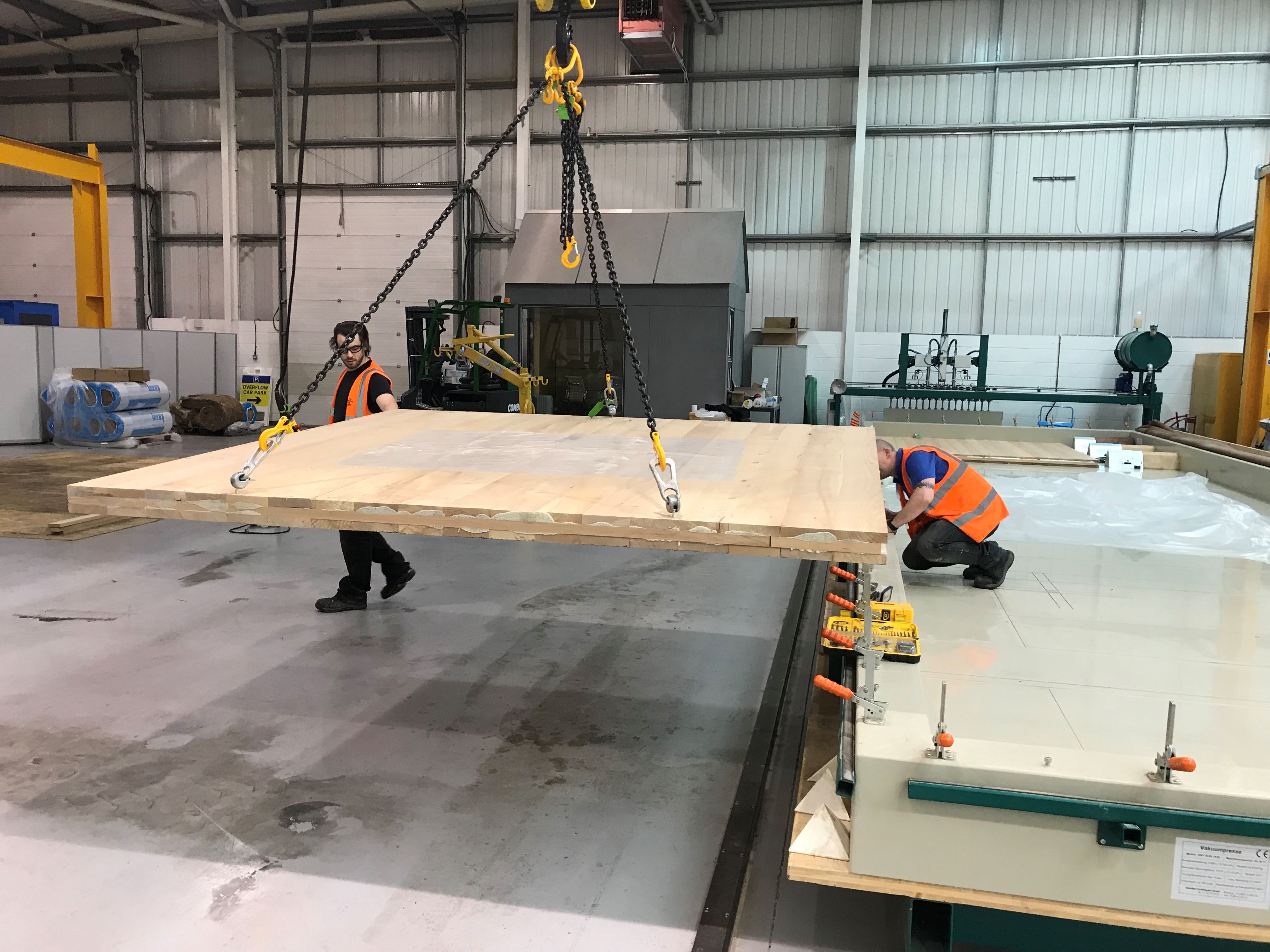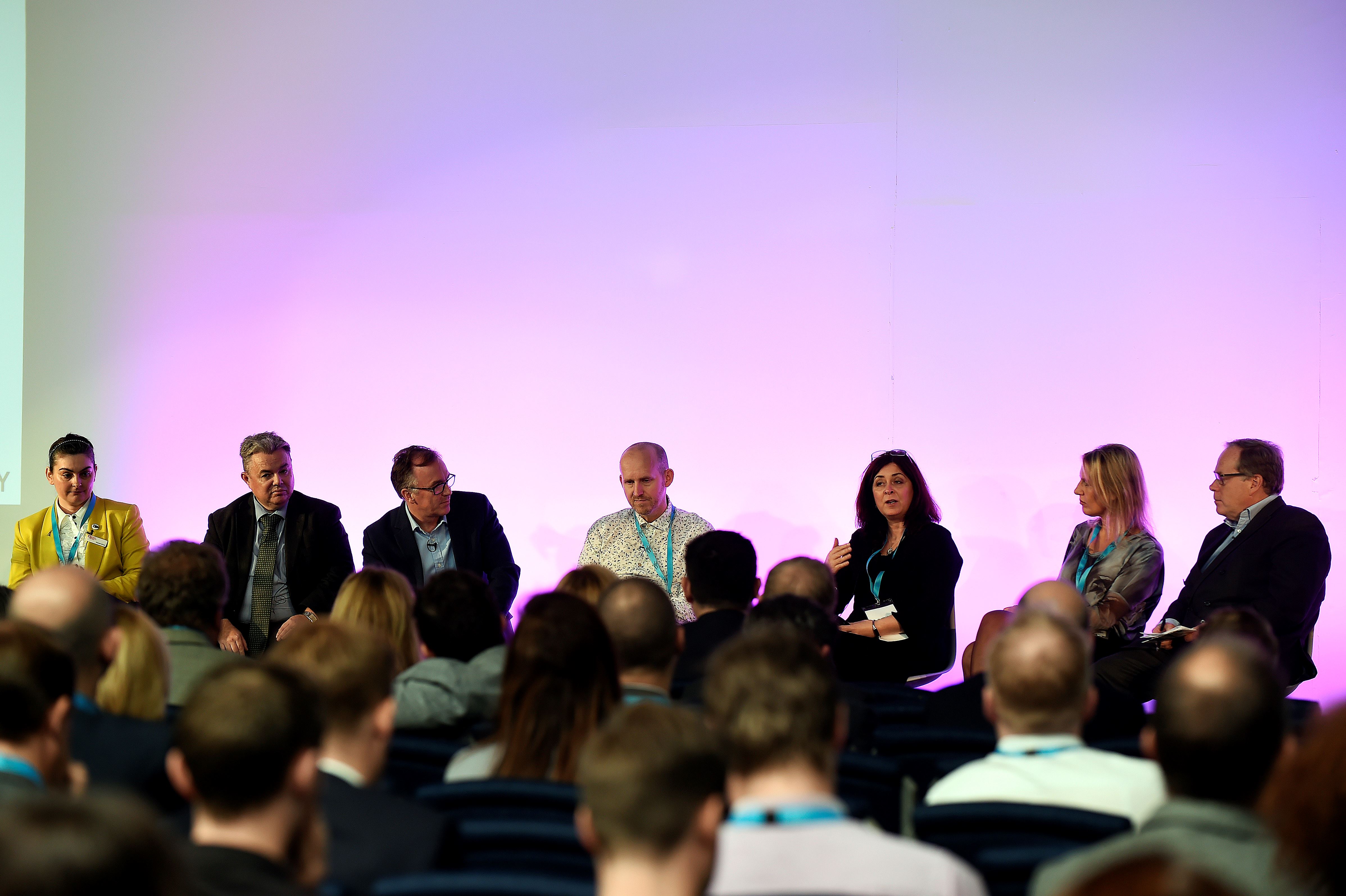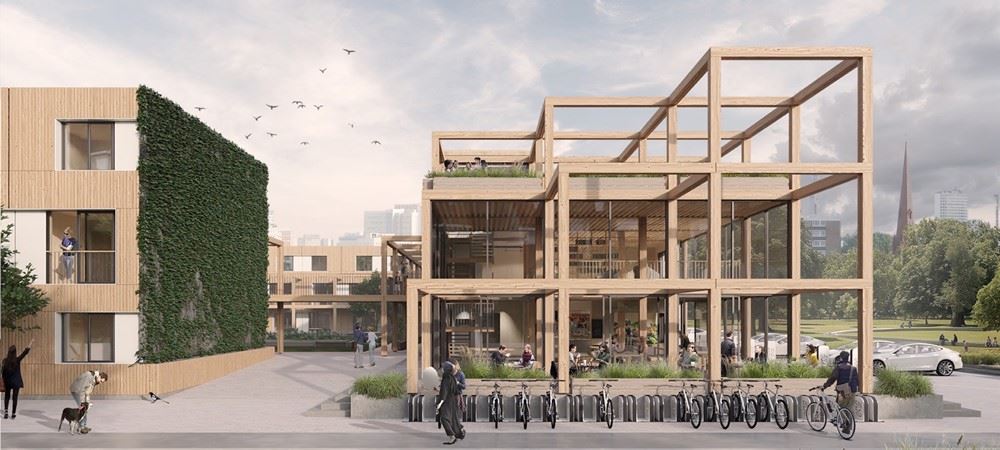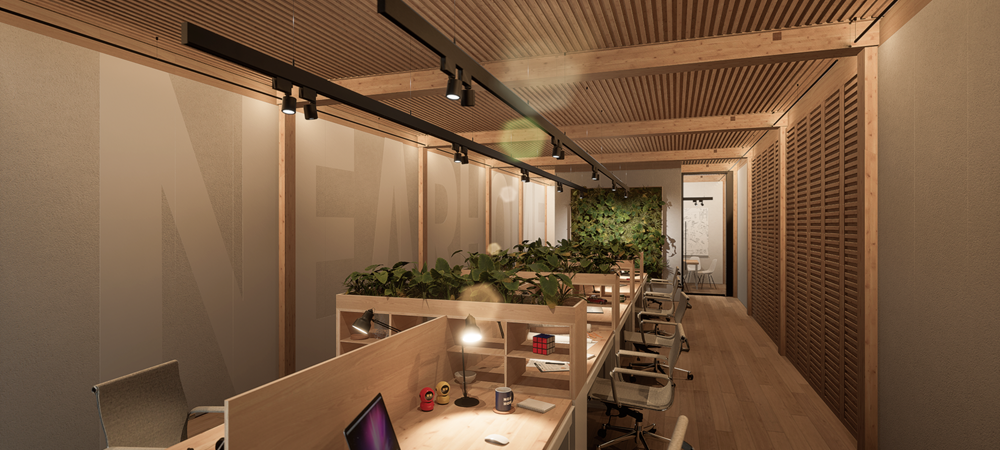Content
Retrofit: What can we learn from Ireland?
Sara Edmonds, Head of Citizen Engagement and Gavin Johnston, Retrofit Impact Manager, went to Ireland to learn about the country's approach to retrofit. The pair wanted to share knowledge with our Irish counterparts and gain insights that could shape Scotland and the UK’s approaches to retrofit delivery as well as the vision for BE-ST's National Retrofit Centre. Over three days, they visited key organisations at the forefront of Ireland’s retrofit delivery, uncovering valuable lessons and opportunities for collaboration.
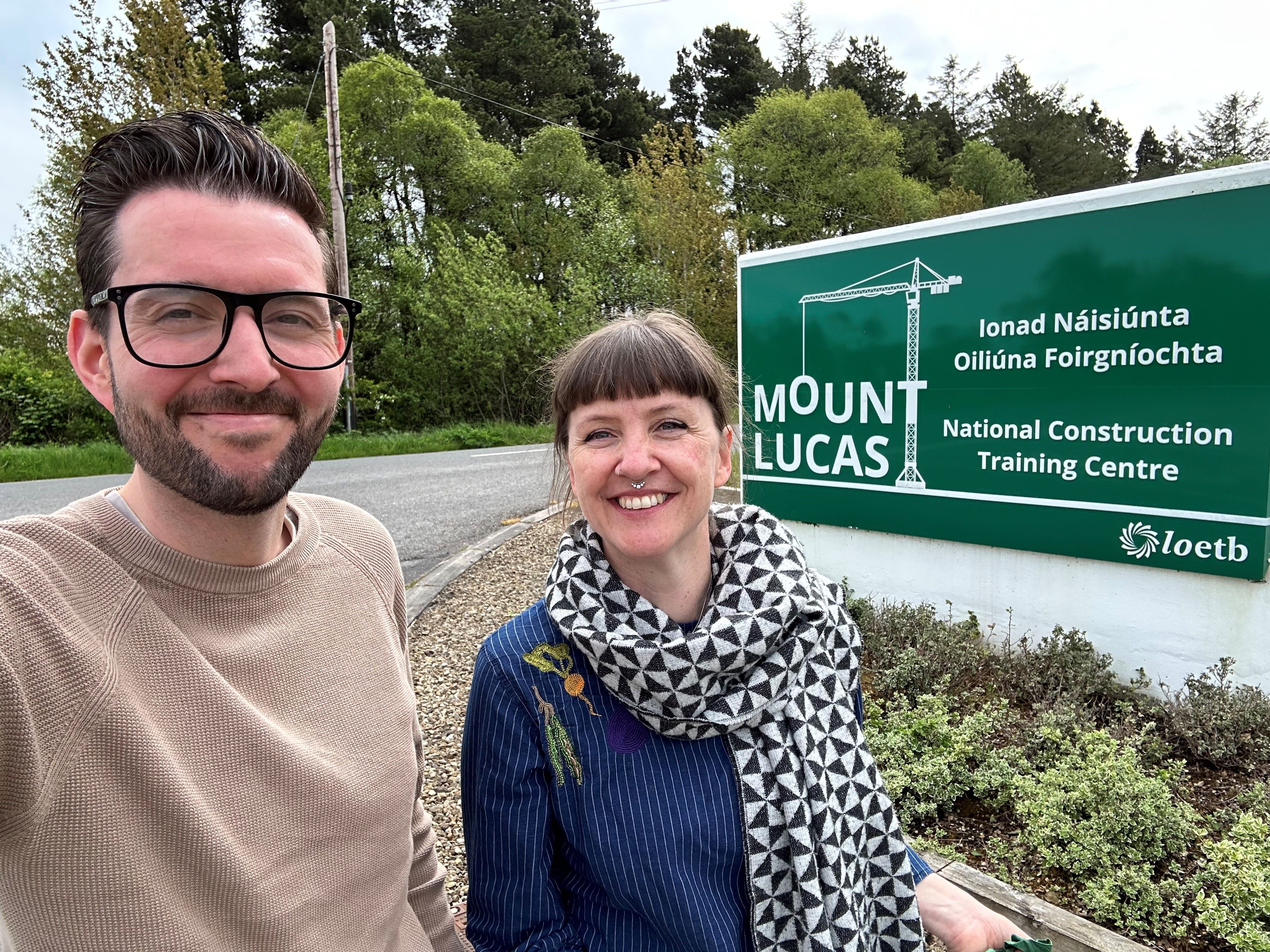
Ireland’s policy context
Ireland published its Climate Action Plan in 2021 which outlines the strategy to reduce Ireland's greenhouse gas emissions by 51% by 2030 and achieve net-zero emissions by 2050, fostering a sustainable, low-carbon economy.
Out of this strategy quickly came the National Retrofit Plan in 2022 which sets out how the government will deliver on retrofit targets. These plans have laid the groundwork for a robust national strategy, which has seen rapid development and significant government support, promising a brighter future for energy efficiency in Ireland.
Last year at BE-ST's International Retrofit Conference, Rob Deegan, Principal Officer leading the Residential Energy Efficiency Division from the Irish Department of the Environment, Climate and Communications introduced the policy context for retrofit in Ireland and the country’s approach.
Day One: Sustainable Energy Authority of Ireland (SEAI)
The first day began with a visit to the SEAI, the public sector organisation responsible for delivering Ireland’s National Retrofit Strategy, where Sara and Gavin met with Dr Ciaran Byrne, and several members of the senior leadership team.
Here Sara and Gavin learned more about the SEAI’s retrofit strategy and the work of the wide-reaching teams tackling different components of the National Plan and in turn shared the current retrofit landscape in Scotland and the UK, and where BE-ST is supporting retrofit delivery. Sara also shared the work that the National Retrofit Hub are focusing on in collaboration with BE-ST.
They learned that the SEAI implements the National Retrofit Strategy through four streams:
- Grants for individual measures: Targeted at specific retrofitting measures. These grants cover a significant portion of the costs, ranging from 50% to 80%.
- One-stop-shop service: A comprehensive service for homes built post-1940's, focusing on interventions such as cavity wall measures and mass-produced retrofitting solutions. At the beginning of the process in 2021, there were two one-stop-shops and now there are over 20 – demonstrating the pace at which progress is happening.
- Fully funded grants: Aimed at addressing fuel poverty, these grants cover 100% of retrofitting costs.
- Sustainable Energy Communities: Investments through capacity building in community projects channeled through both new and existing community organisations to drive collective retrofitting efforts. There are now over 800 of these registered nationwide.
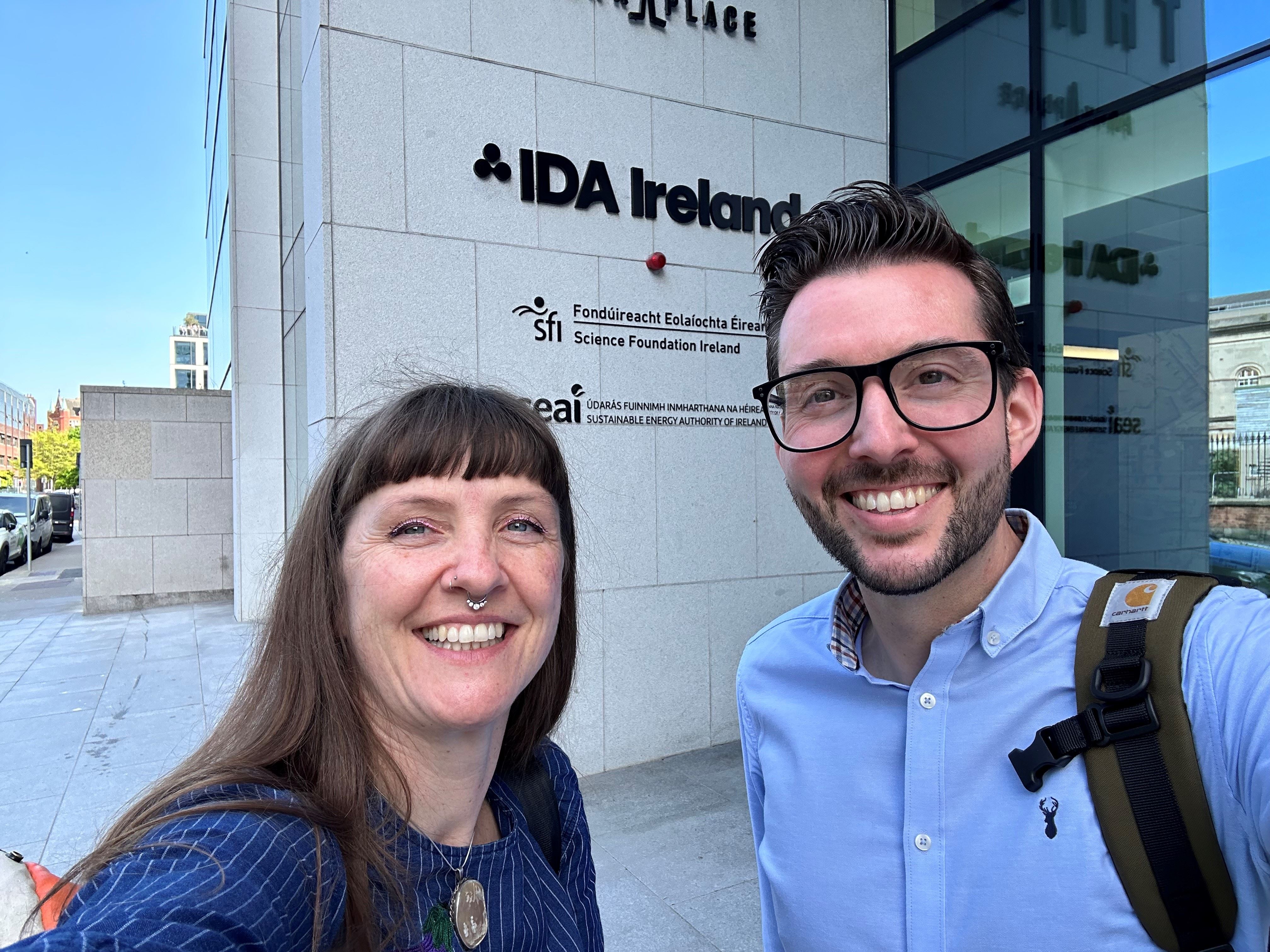
Day Two: National Construction Training Centre at Mount Lucas
The second day took Gavin and Sara to the National Construction Training Centre at Mount Lucas, one of six training centres across Ireland. The Training Centre offers a vast range of training and testing services in construction-related areas for members of the public and the supply chain, with a particular focus on retrofitting skills.
Sara and Gavin were shown around the facility and were able to get hands-on with the training centre’s various training rigs and bays that replicate the real-world conditions found in Ireland’s existing buildings. Using these rigs, trainees get practical experience in areas such as external and internal wall insulation, airtightness, the installation of solar PV, and cavity wall and roof insulation.
Courses at the National Training Centre are free for anyone with an Irish or Northern Irish national insurance number or equivalent and are aimed at current workers in the sector looking to upskill and unemployed people seeking to enter the sector.
The centre also operates a mobile training unit – a truck-base that expands to the size of a classroom and is equipped to provide on-site training at schools and other locations – and which Gavin and Sara learned was procured and kitted out in just three weeks. This mobile unit extends the reach of retrofit education, delivering training and engaging people directly within communities, and promotes the principles of retrofit and Nearly Zero Energy Buildings (NZEB) among younger generations.
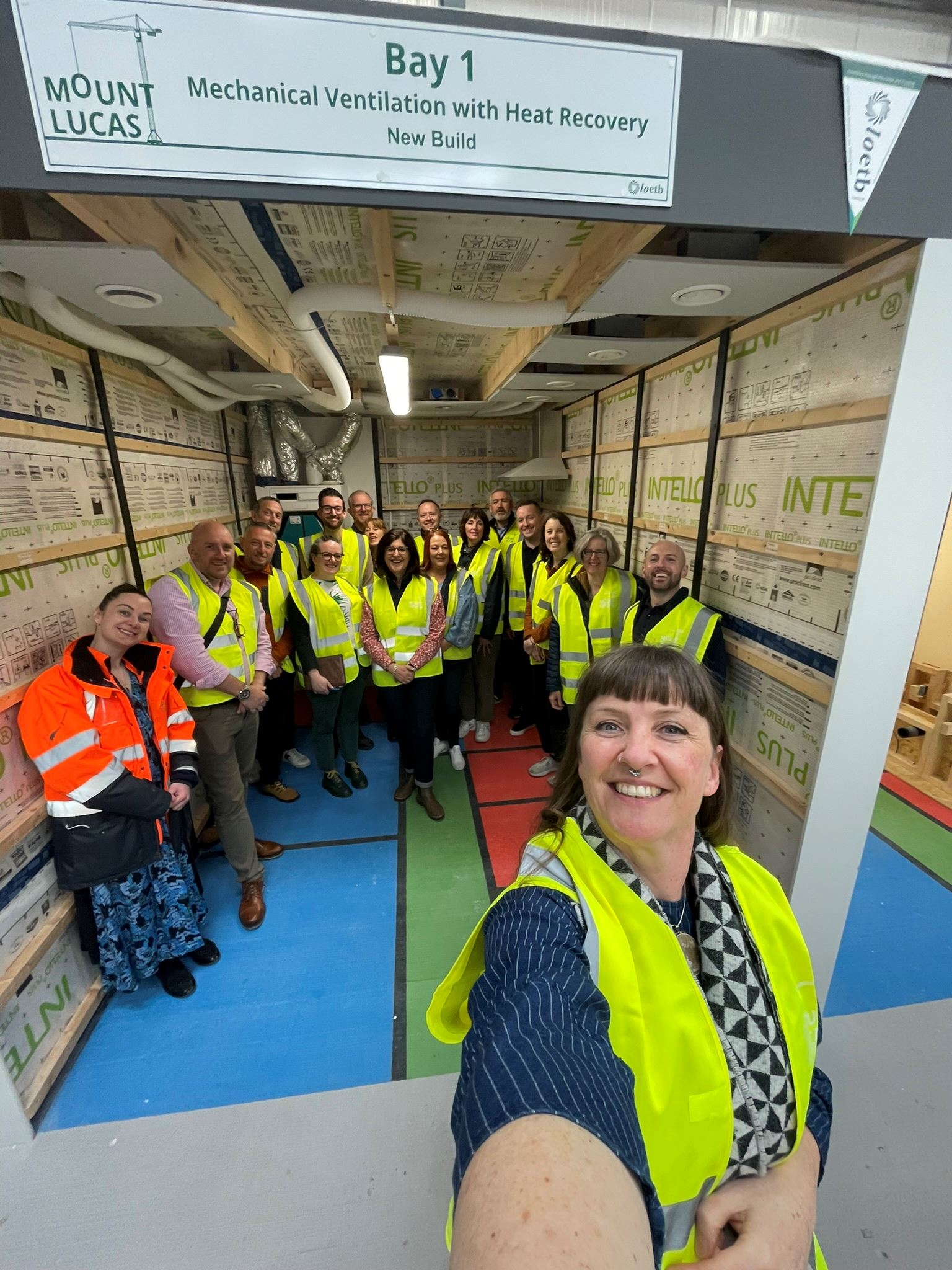
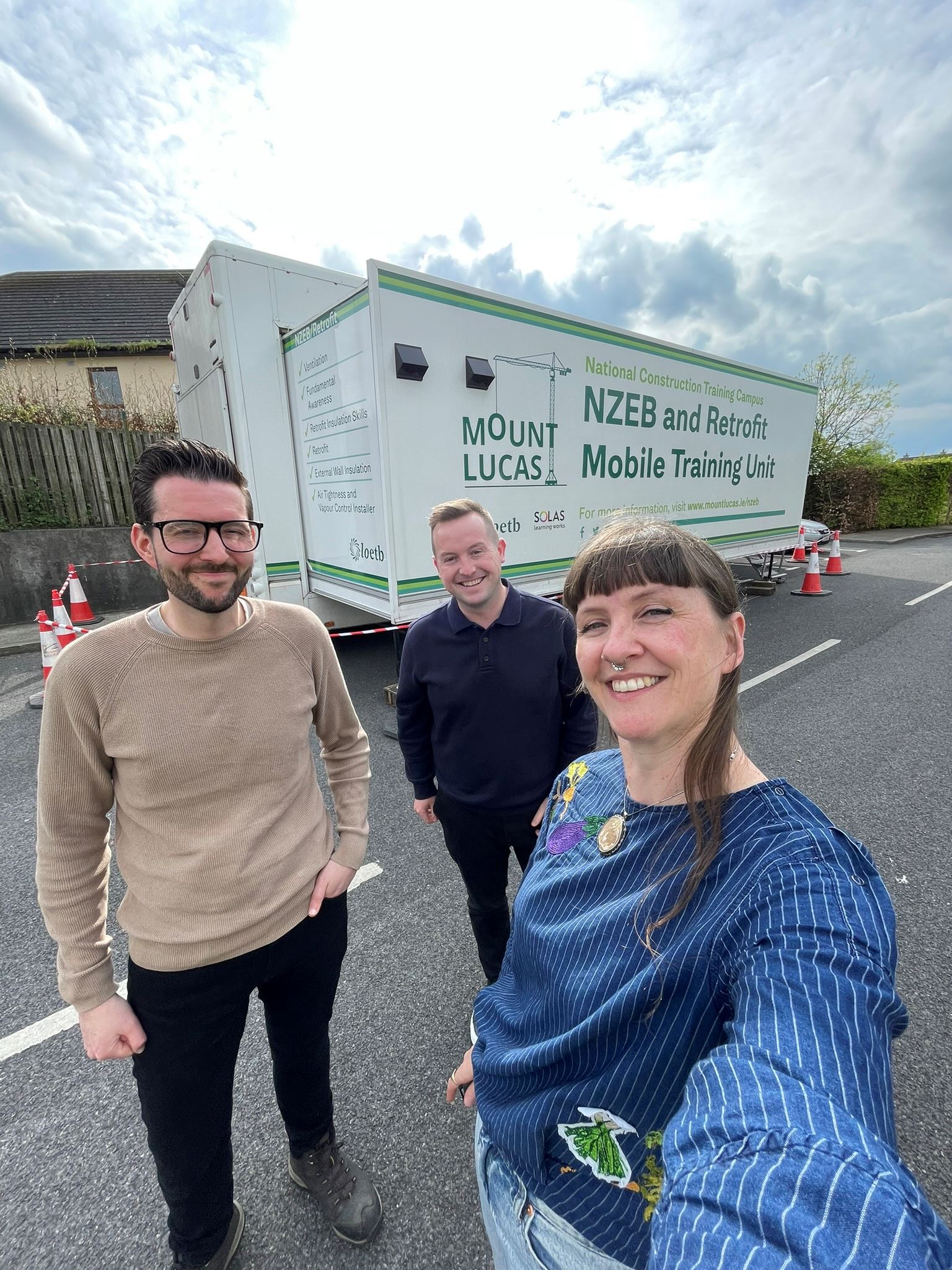
Day Three: Ecological Building Systems
The final day was spent with Ecological Building Systems (EBS), a construction materials company whose mission is to support the construction sector in the creation of a better-built environment through the supply of innovative, ecological building materials and solutions and deliver quality products and training. EBS also supported the National Construction Training Centre with the development and construction of its mobile training unit.
Gavin and Sara visited the EBS training centre, which is equipped with product showcases and practical rigs, to offer hands-on training in the application of natural materials in retrofitting in traditional buildings.
While there, Gavin and Sara got the chance to take part in a training course for an innovative product - a lime plaster that doubles as insulation - a retrofit solution ideal for traditional buildings where external retrofit measures are not possible. This hands-on experience highlighted the importance of simple, confidence-building training methods in retrofit. The pair were also impressed and inspired by the extent of knowledge and passion shown by the EBS team in delivering the training.
The visit to EBS exemplified how traditional building methods could be adapted to meet modern sustainability goals. The focus on practical delivery and confidence-building through training in traditional building techniques with innovative products demonstrates a model that could be replicated and adapted in Scotland.
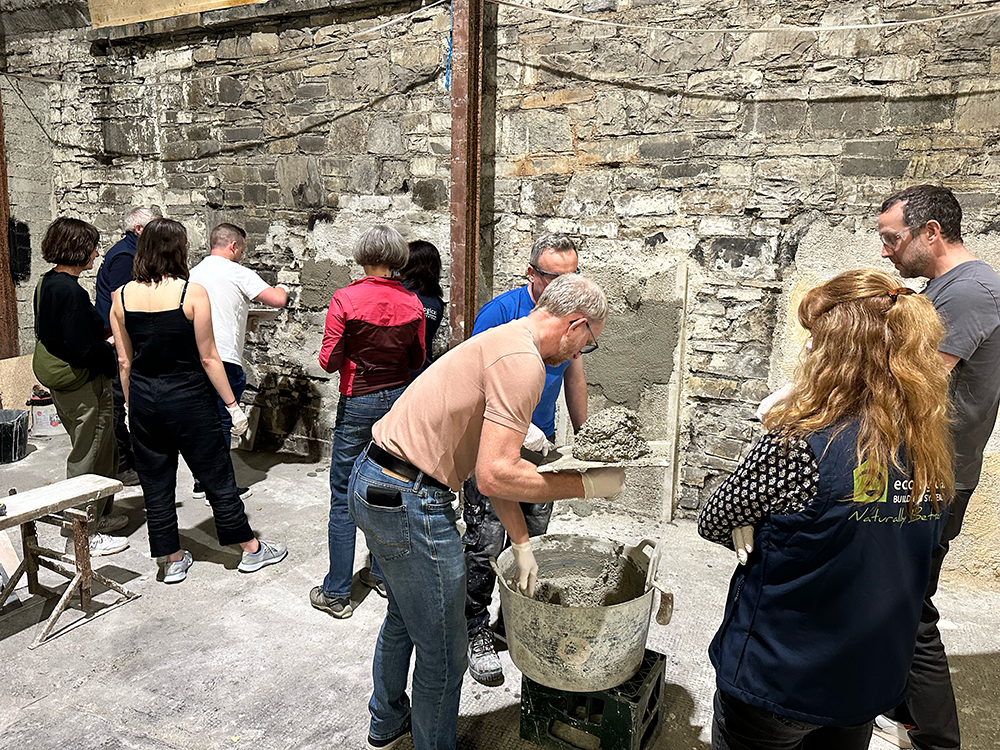
Key Takeaways
From their time spent in Ireland, soaking up the experiences of those delivering retrofit on a daily basis, the pair have come home with several learnings that will be critical to Scotland and the UK’s delivery of its own retrofit strategies:
- Successful delivery of retrofit programmes heavily depends on the quality of relationships and trust networks between the government and delivery partners such as trainers, schools, and community groups. Building strong, trustworthy connections is essential for effective collaboration and implementation.
- Don’t let perfection be the enemy of progress. Building a national programme of retrofit delivery will not be perfect from the start. Continuous iteration and improvement are vital for making progress. Starting with what is feasible and refining it over time can lead to better outcomes and addresses the need for urgency.
- Free training alone does not guarantee participation. It is a common misconception that offering free training will automatically attract participants. Strategic planning on how and when to offer training is necessary to ensure effective uptake and engagement.
- Engaging communities through pre-existing groups, such as civic, religious and sports organisations, is incredibly valuable. These groups already have established lines of communication and trust within the community, making them effective channels for promoting retrofit initiatives that shouldn’t be overlooked.
- Each retrofitting intervention creates benefits that are far greater than the sum of its parts. The cumulative impact of these interventions can lead to significant improvements in energy efficiency, economic growth, community well-being, and more.
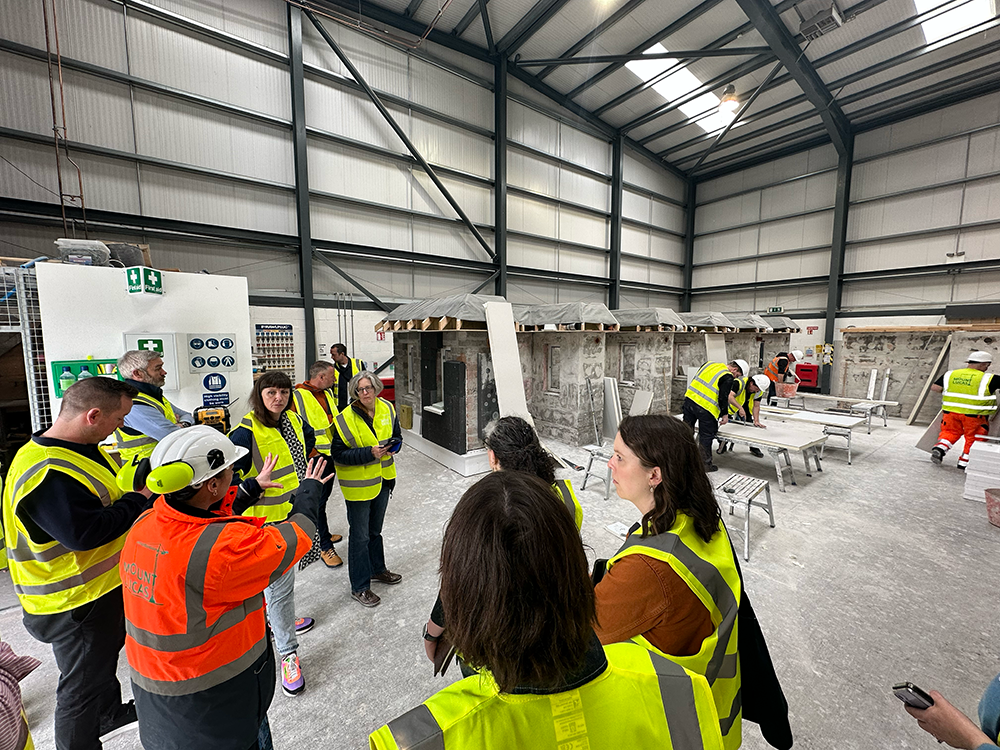
Lessons for Scotland and the UK
Most importantly, what we should recognise and take seriously from this trip is what Ireland has been able to achieve in a relatively short timeframe. Over four years the SEAI has been able to launch a climate change plan and design a joined-up retrofit strategy that they are already delivering significantly against – and they’ve been able to do this without reinventing the wheel. They have identified and built on existing resources, facilities, organisations, and channels of communication.
The trip highlighted that there are huge opportunities for collaboration with Ireland and leveraging the learnings from our Irish counterparts will be crucial to making sure Scotland can similarly accelerate its delivery of retrofit.
Taking just one example, there is a need to develop a consistent standard for quality assurance in retrofit. Ireland is developing this process which is a prime opportunity for Scotland to follow in and learn from its footsteps. There is also potential for future collaborations between BE-ST's National Retrofit Centre and Ireland's National Construction Training Centre through the sharing of training rig designs, teaching methods, and course content. This exchange of resources and knowledge would enhance construction education and training in Scotland, helping to address skill gaps and improve the quality of retrofit work.
Sara Edmonds, Head of Citizen Engagement said: "This really was the most incredible and inspiring trip. It is so impressive to see what has been achieved in a relatively short time, which is promising for Scotland and the UK as a whole. There was comparably little retrofit activity just a few years ago and now there is so much. It gives us something to aspire towards. It also underpins the need for broad and meaningful collaboration. Collective action is what we need to continue championing at BE-ST."
Gavin Johnston, Retrofit Impact Manager said: “The visit to the National Construction Training Centre was inspiring and confirmed BE-ST’s critical role in supporting the national effort, and we are not a million miles off where we want to be. Both centers take a hands-on training approach with realistic simulation of building conditions, but we still have work to do to increase the scale of delivery and increase the range of training to match Ireland’s numbers, who are similarly struggling to close the skills gap. There are practical, scalable models here that we can replicate, such as the mobile training unit and the universality of access, to enhance our construction education and retrofit skills training in Scotland and accelerate the decarbonisation of our existing buildings."
